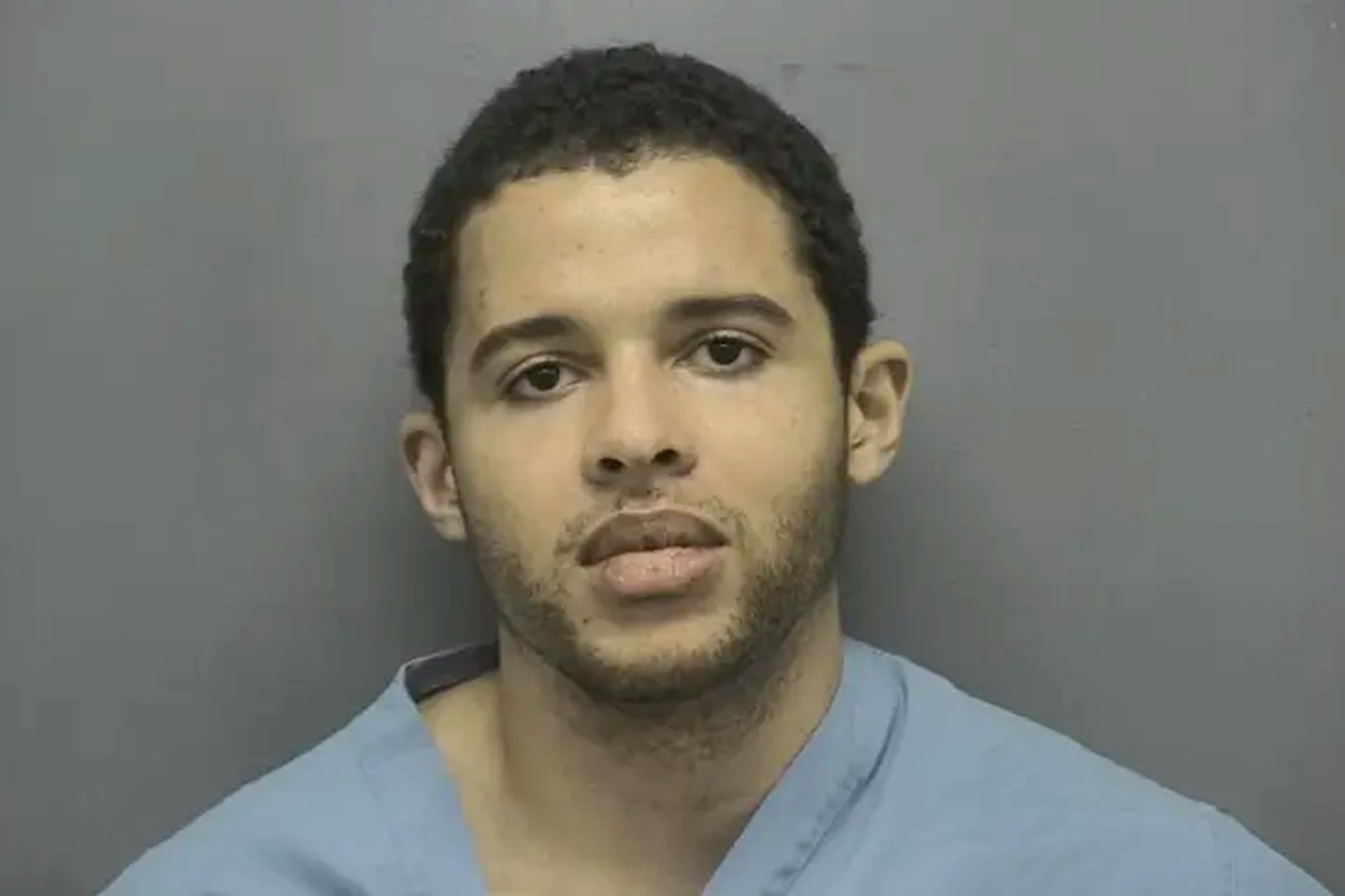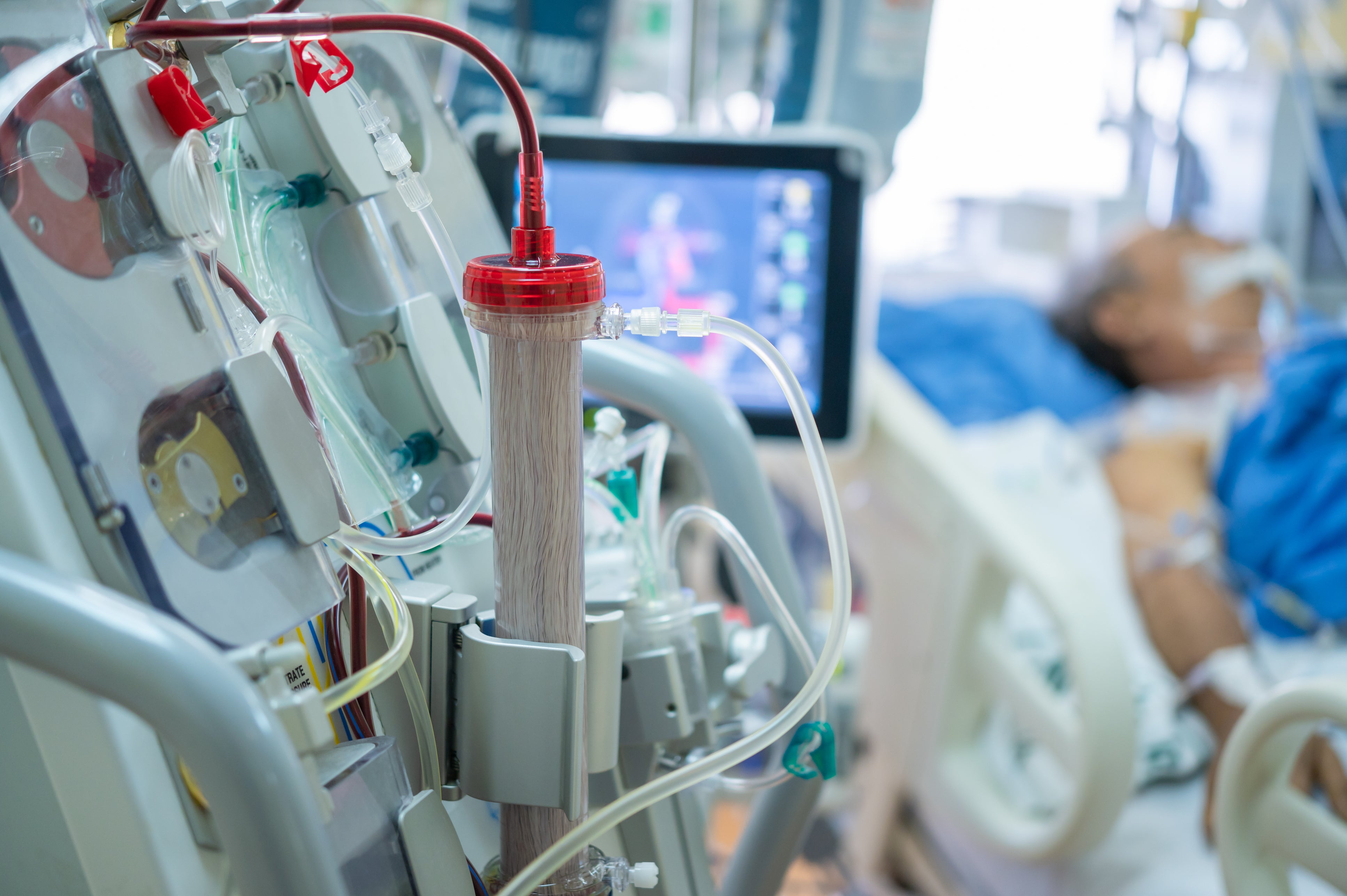A once-promising medical student has given the first indication as to why he allegedly attempted to shoot a kidney specialist dead in Indiana earlier this year, an attack that came just a month after UnitedHealthcare CEO Brian Thompson was gunned down in the streets of New York City.
The suspect in that case, Luigi Mangione, made international news after fleeing the scene and sparking a five-day manhunt that ended with his arrest in a Pennsylvania branch of McDonald’s on December 4.
He is currently awaiting trial on 11 state and four federal charges, with the Justice Department pushing for the death penalty. He has since inspired a degree of perverse fandom — and even a new musical.
However, Andre Uche Obua’s story is much less familiar. He too is awaiting trial, in his case for attempted murder, after driving from Miami, Florida, to Terre Haute, Indiana, in January and allegedly shooting dialysis expert Dr. Manish Gera in the forearm outside of the medic’s suburban garage before being wrestled to the ground in the driveway and finally apprehended by law enforcement.

Obua, 29, has not previously offered much by way of explanation for his conduct, other than to tell a nurse who treated him in the hospital that there was a “multimillion-dollar money scam going on between a couple of doctors in the same office as the victim.”
Court records filed in January state: “He made reference to the CEO that was shot and killed most recently in New York City and stated that this situation was very similar.”
But after reviewing letters sent from Vigo County Jail, past emails, and a website set up by the defendant, CBS News reports that Obua had become obsessed with the lucrative $ 40 billion-a-year American dialysis industry, upon which 500,000 patients rely, and the perceived injustices surrounding it — a motive eerily similar to Mangione’s.
Prior to his arrest, Obua had sent a series of emails to author Tom Mueller, having read his book How to Make a Killing: Blood, Death and Dollars in American Medicine (2023), according to CBS, corresponding with the writer about his concerns regarding a medication being prescribed to kidney patients to speed up the dialysis process, which he believed could be endangering their health.
“The kinds of emails he sent were totally rational, very thoughtful, extremely data-driven,” Mueller told the network, describing their sender as “the last person in the world I would think to commit a violent act.
“I nearly fell off my chair when I heard,” he said of Obua’s crime. “My sense is that [his] level of desperation just must have found an outlet in a violent act.
“We’re living in extreme times. And it’s a tragic, tragic event.”
Increasingly preoccupied with exposing the medication in question, Obua reportedly consulted a lawyer about becoming an industry whistleblower at one point, but walked away, persuaded that he would not have been successful in court.
Abandoning that avenue, he is said to have laid out his concerns online by setting up a website on which he “unspooled mountains of his research, theories and accusations.”
Increasingly frustrated that his message was not getting through, he set out for Indiana in January, with one source telling CBS he had drawn up a list of names to target, with Dr. Gera near the top.

Prosecutor Terry R. Modesitt told the network the injured man “had never done anything to justify having violence brought against him.”
He also expressed concern about the possibility of more vigilante violence erupting from assailants who take Mangione for a role model.
“These cases that we read about in the news or watch on TV – there’s no excuse for this,” he said.
“Go out and protest. Write your congressman… file a complaint with the attorney general’s office in your state, things like that. But no, there’s never any justification to go try to murder someone.”
Modesitt said he had no sympathy for Obua: “If you’ve got a problem in any way with the system or anything else, we have attorney generals, we have secretary-of-states, different entities that you can file a complaint with.
“But it’s never justified to take the law in your own hands.”




